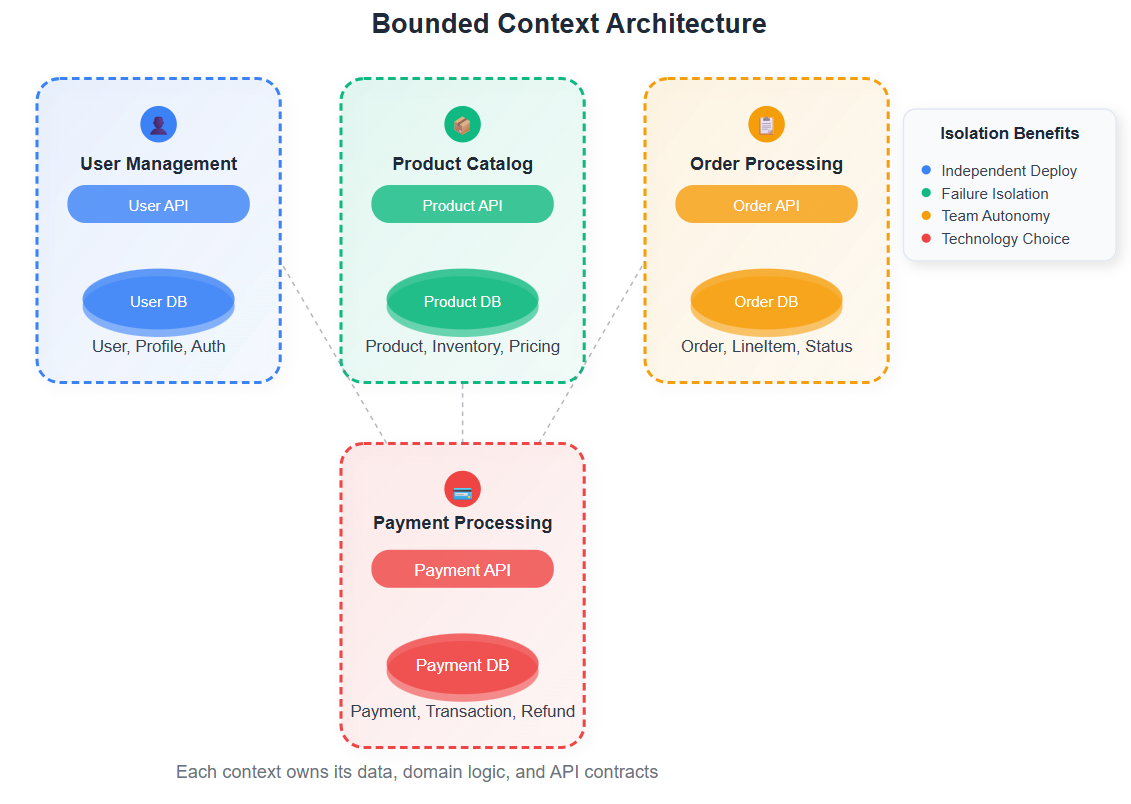Bounded Contexts - Isolating System Components
Issue #127: System Design Interview Roadmap • Section 5: Reliability & Resilience
Working Code Demo:
When Everything Becomes Everyone's Problem
Your e-commerce platform started simple. Users, products, orders—all living happily in one database. Then growth hit. The user team needed to add social features, but touching the user table broke the checkout flow. The inventory team's schema changes broke the recommendation engine. Every deployment became a high-stakes coordination dance between teams.
This isn't just a scaling problem—it's a boundary problem. Without clear component isolation, systems become tightly coupled webs where a single change can trigger cascading failures across unrelated features.
What You'll Master Today
• Bounded Context Fundamentals - Creating clear system boundaries that prevent coupling • Context Mapping Patterns - How different contexts interact without breaking isolation
• Implementation Strategies - Practical patterns for database, API, and team boundaries • Real-World Case Studies - How Netflix, Amazon, and Uber achieve component isolation
The Hidden Power of Bounded Contexts
Bounded contexts aren't just about code organization—they're about creating failure isolation boundaries. When one context fails, others continue operating. When teams need to evolve their domain, they can do so independently.


